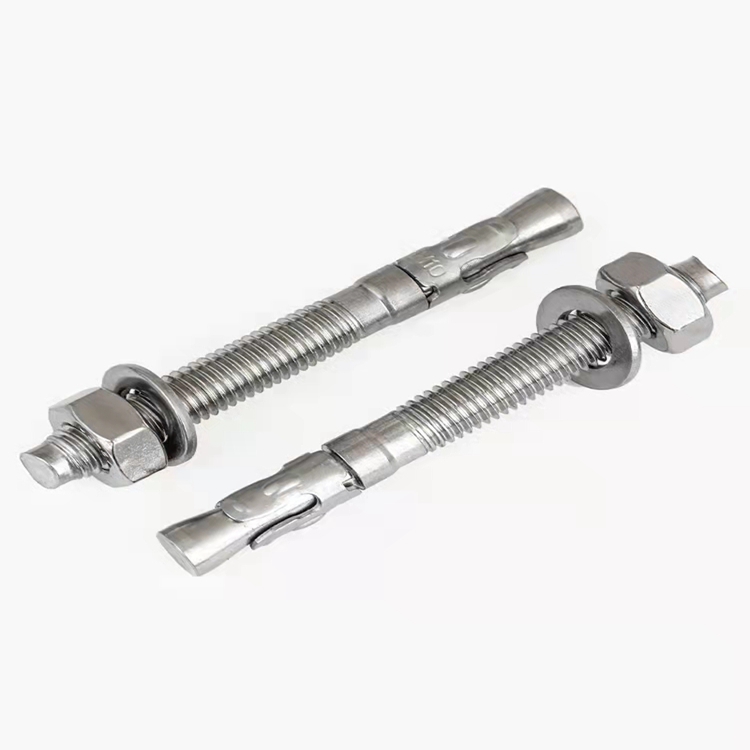BBC Acquires Head Bolts Company to Enhance Manufacturing Capabilities and Product Offerings
Tet . 12, 2024 20:27 Back to list
BBC Acquires Head Bolts Company to Enhance Manufacturing Capabilities and Product Offerings
The Significance of Head Bolts in Modern Manufacturing
In the fast-paced world of manufacturing, the integrity of machinery and structures hinges on the reliability of every component, no matter how small. Among these components, head bolts play a critical role, serving as essential fasteners in a range of applications from automotive engines to heavy machinery. Understanding the importance, design, and evolution of head bolts can provide valuable insight into their role in modern manufacturing.
What are Head Bolts?
Head bolts are fasteners that are typically characterized by a head on one end and a threaded shaft on the other. They are primarily used to hold various parts of machinery or structures together, ensuring stability and functionality. In automotive contexts, head bolts are particularly crucial as they secure the cylinder head to the engine block. A malfunction in a head bolt can lead to catastrophic engine failure, making their design and material selection vital concerns for engineers and manufacturers alike.
Material and Design Considerations
The choice of materials for head bolts is a critical aspect of their design. Commonly made from steel, these bolts can be further enhanced through various processes such as heat treating and coating to improve their strength and corrosion resistance. Grade specifications, such as those from the ASTM (American Society for Testing and Materials), provide guidelines on the tensile strength and yield strength required for head bolts in different applications.
Furthermore, the design of head bolts often includes advanced engineering features to optimize performance. For instance, many modern head bolts are designed with a flanged head or a specific thread pattern to better distribute load and enhance grip. These innovations are essential in high-stress environments, ensuring that the bolts perform reliably under extreme conditions.
Manufacturing Processes
bbc head bolts company

The production of head bolts involves precision machining processes that adhere to strict quality control measures. From cold heading to threading and finishing, each step is carefully monitored to ensure that every bolt meets the stringent requirements of the industry. Automated systems and robotics are increasingly employed in the manufacturing process, which not only enhances production speed but also increases consistency and reduces the likelihood of defects.
Moreover, advancements in additive manufacturing are beginning to influence the production of head bolts. This technology enables the creation of complex geometries and tailored material properties, which could lead to lighter, stronger, and more efficient fasteners. As the manufacturing landscape continues to evolve, incorporating these innovations will be crucial for companies seeking to enhance their competitive edge.
Applications Beyond Automotive
While head bolts are most commonly associated with automotive applications, their usage extends far beyond this industry. They are found in aerospace, construction, and even consumer electronics. In the aerospace sector, for instance, head bolts must meet rigorous standards for weight and strength due to the demanding nature of flight. In construction, they play a critical role in securing structural components, ensuring the stability and safety of buildings and infrastructure.
Challenges in Sustainability
As industries strive for sustainability, the manufacturing of head bolts faces several challenges. The production process for traditional metals contributes to significant emissions and environmental impact. Consequently, there is a growing demand for sustainable practices within the manufacturing sector, including the development of eco-friendly materials and processes. Companies are exploring alternative materials such as alloys that are recyclable or utilizing manufacturing techniques that reduce waste.
Conclusion
Head bolts may seem like simple components, but they are fundamental to modern manufacturing and engineering. Their evolution—from traditional carbon steel to advanced materials and manufacturing processes—mirrors the rapid advancements in technology and changing demands of various industries. As sectors continue to prioritize efficiency and sustainability, the role of head bolts is poised to evolve further, reinforcing their significance in the intricate machinery and structures that define our world. Understanding and appreciating the intricacies of such components can lead to better designs and innovations, setting the stage for the future of manufacturing.
Latest news
-
Durable Bolts for Lawn Mower Handle - Top Supplier & Manufacturer
NewsAug.22,2025
-
High-Quality Bolts for Lawn Mower Handle Supplier & Manufacturer
NewsAug.21,2025
-
Reliable Axle Nuts Supplier | High-Quality Automotive Parts
NewsAug.19,2025
-
Premium Wire Bolts Suppliers | Durable & Reliable Fasteners
NewsAug.18,2025
-
Leading Metric Wood Screw Companies & Manufacturers
NewsAug.17,2025
-
Top Wire Bolts Suppliers - Quality & Durable Fasteners
NewsAug.15,2025
